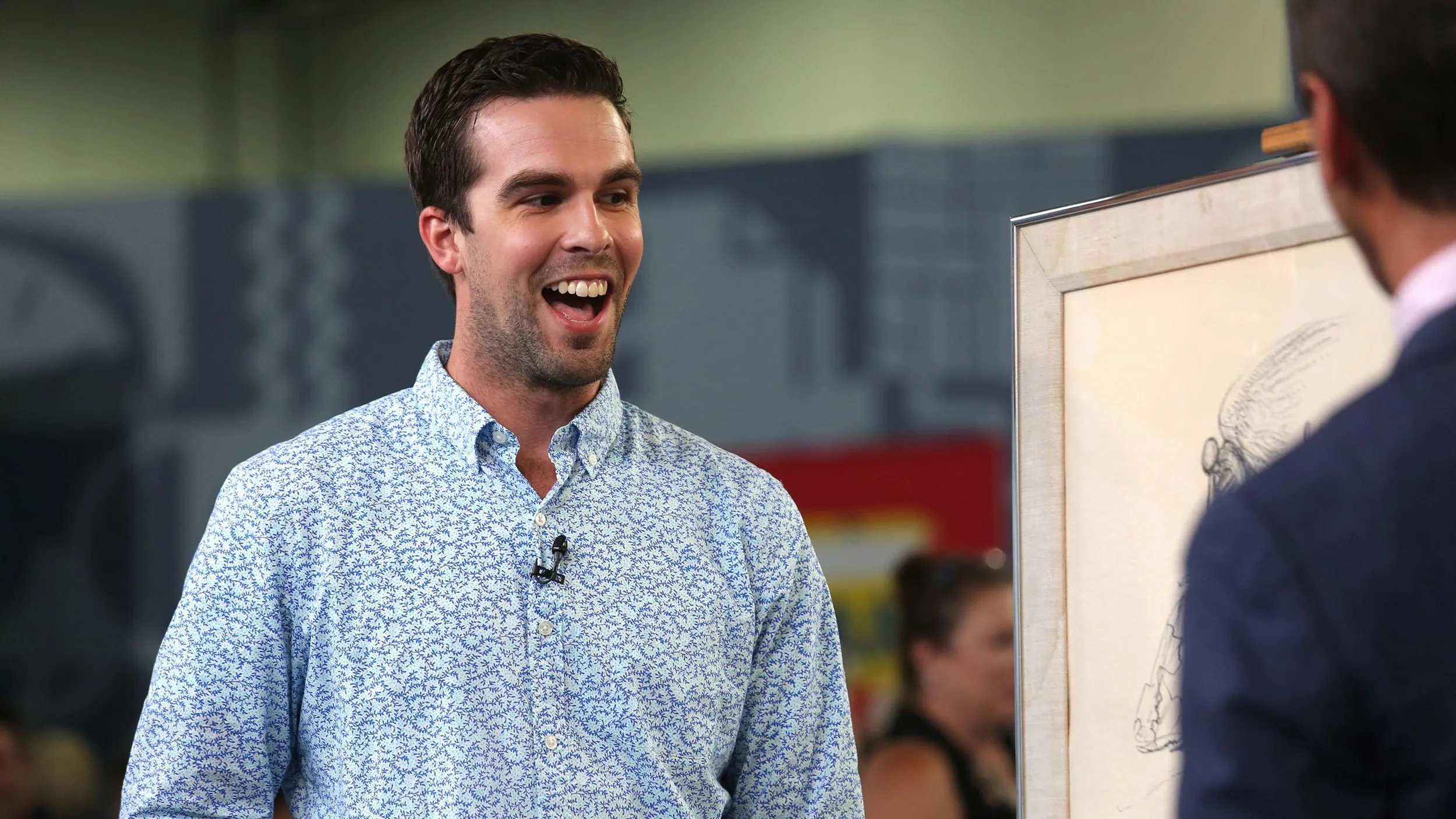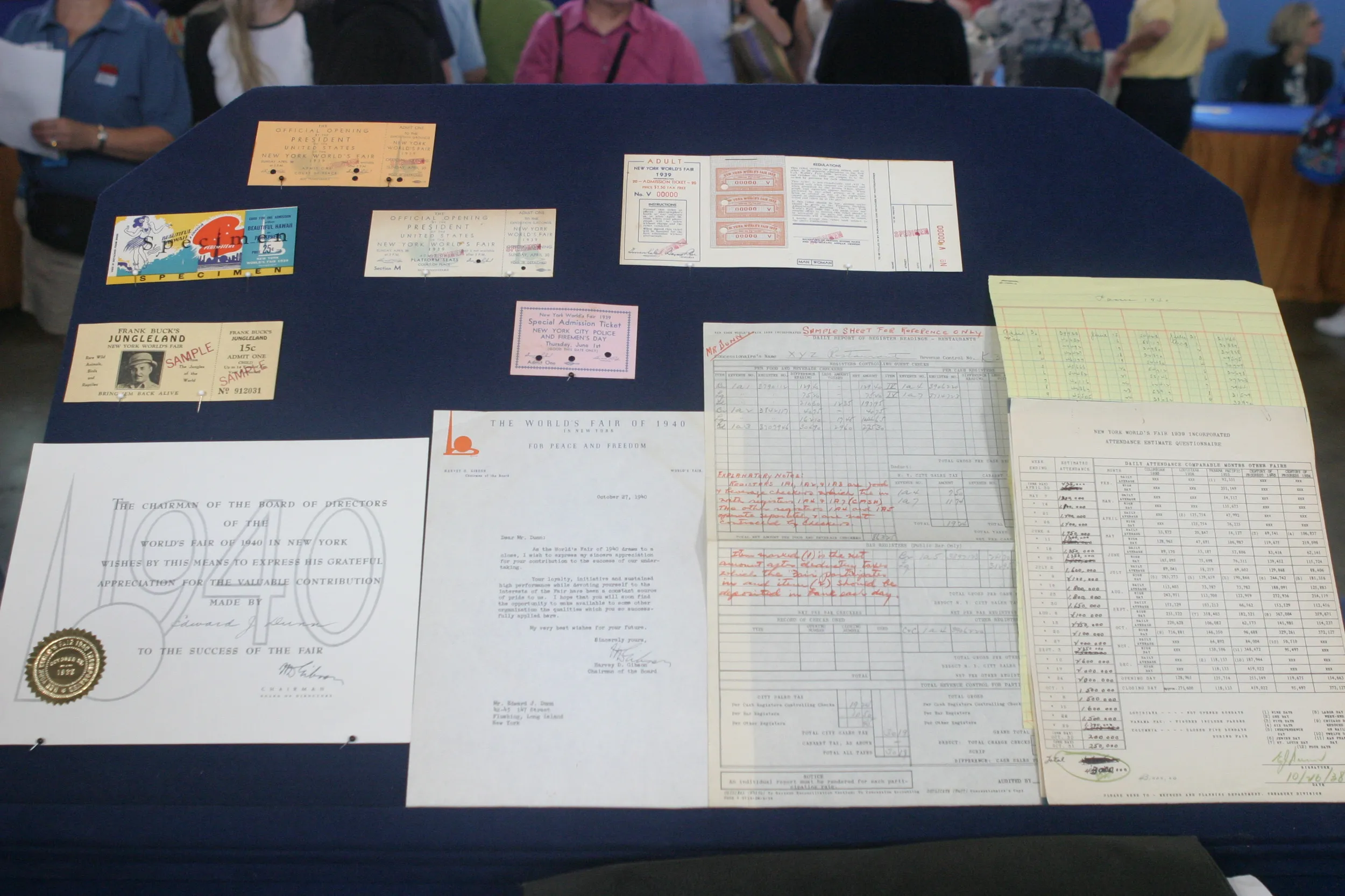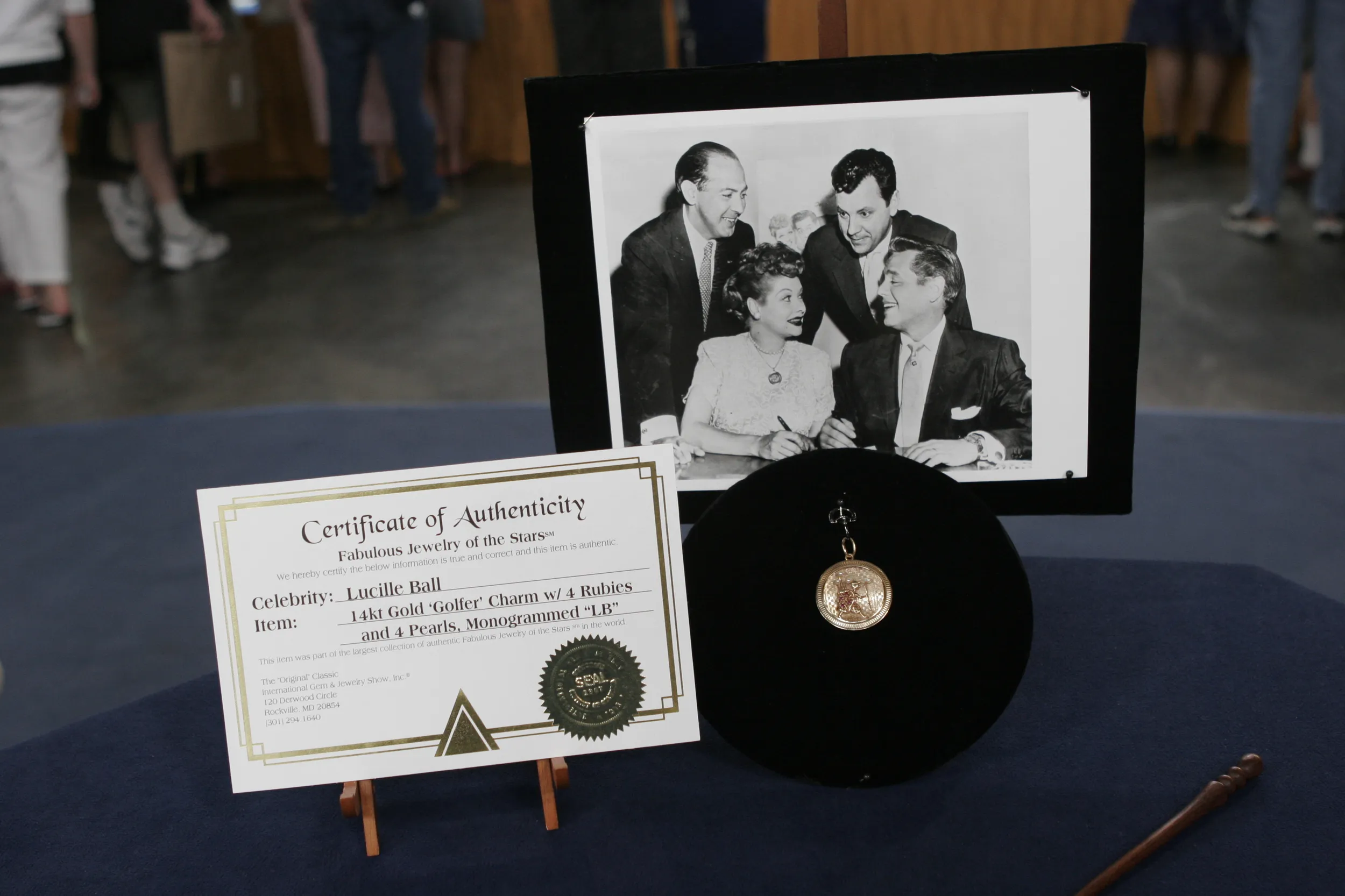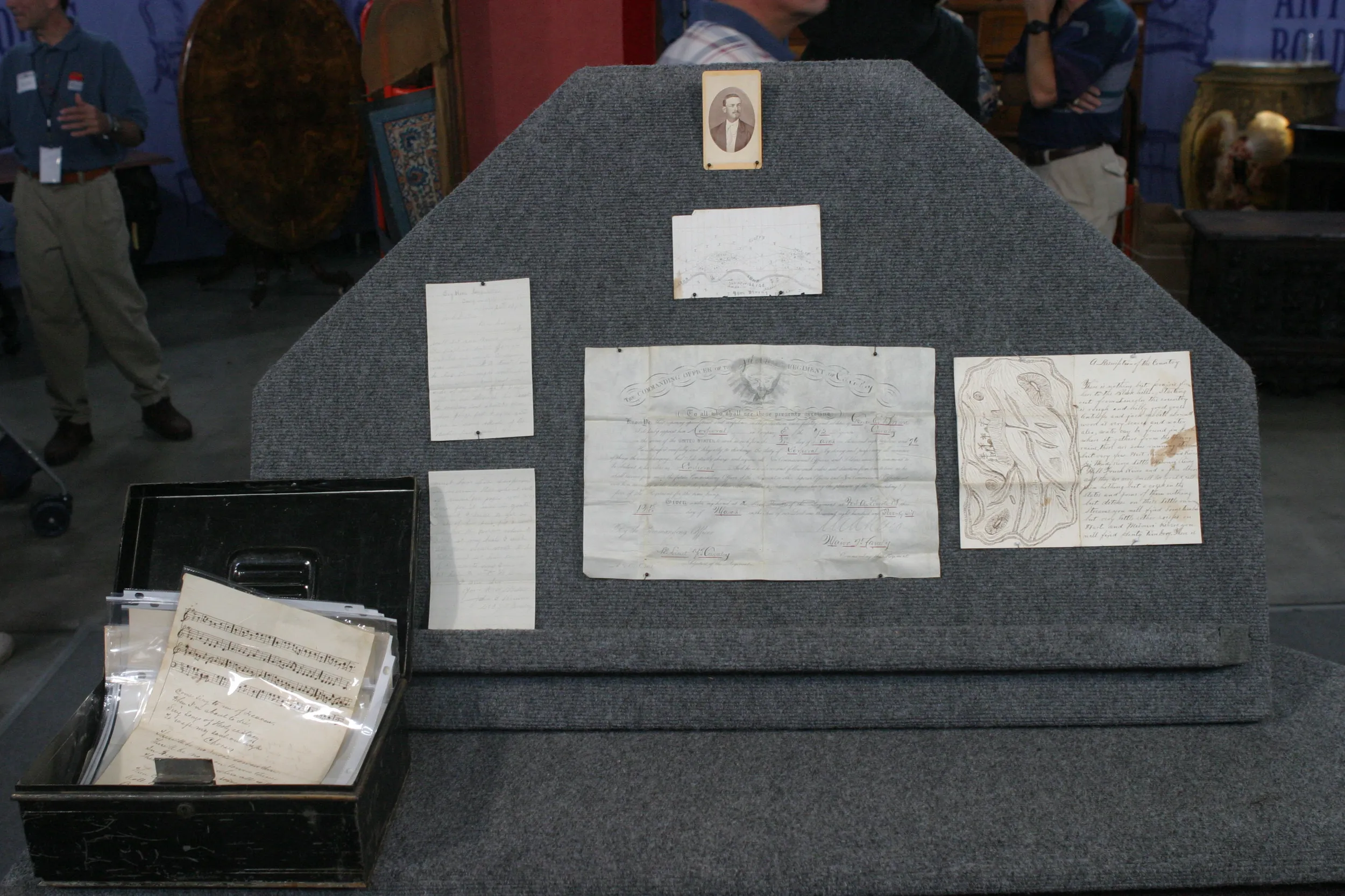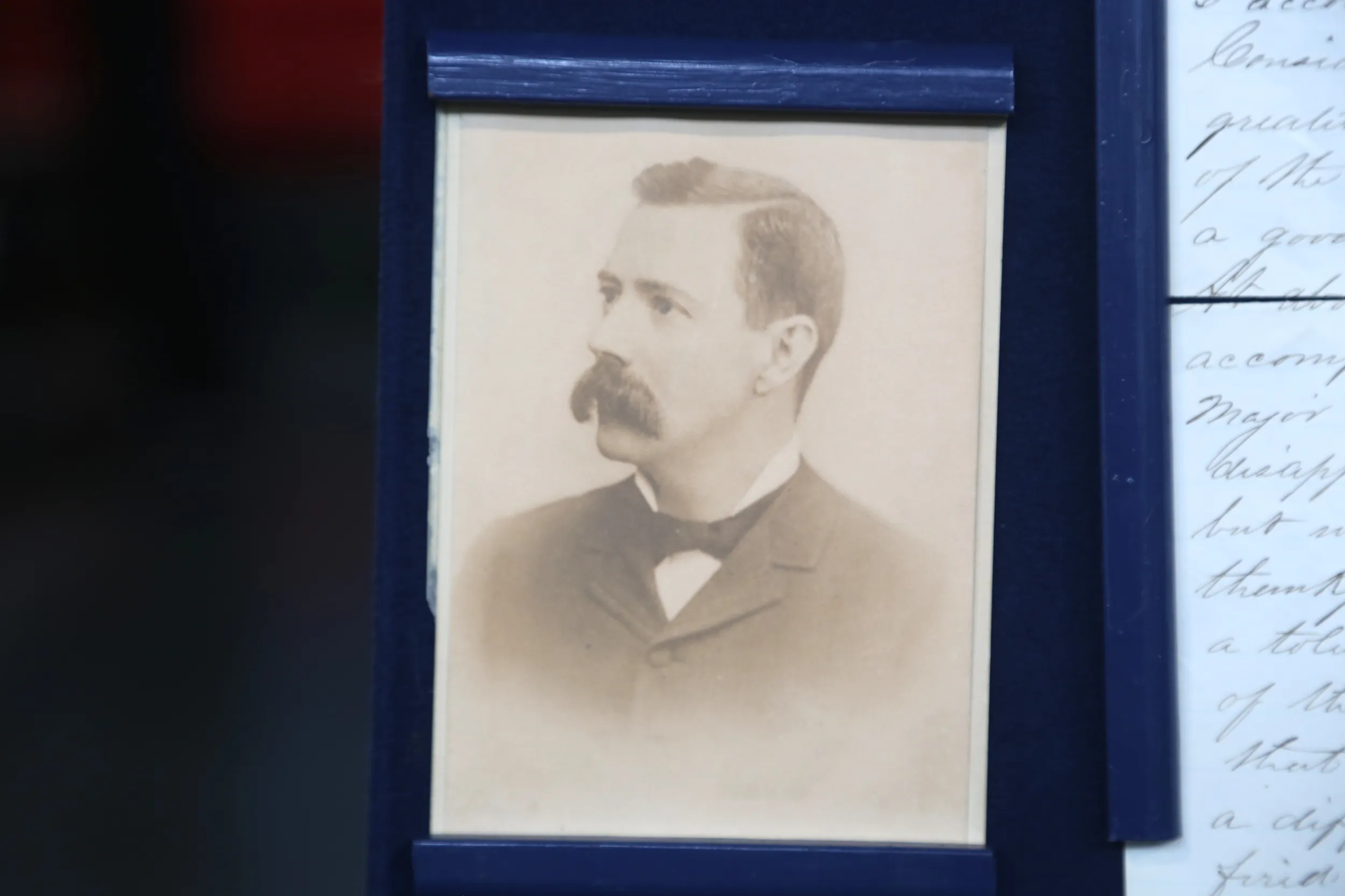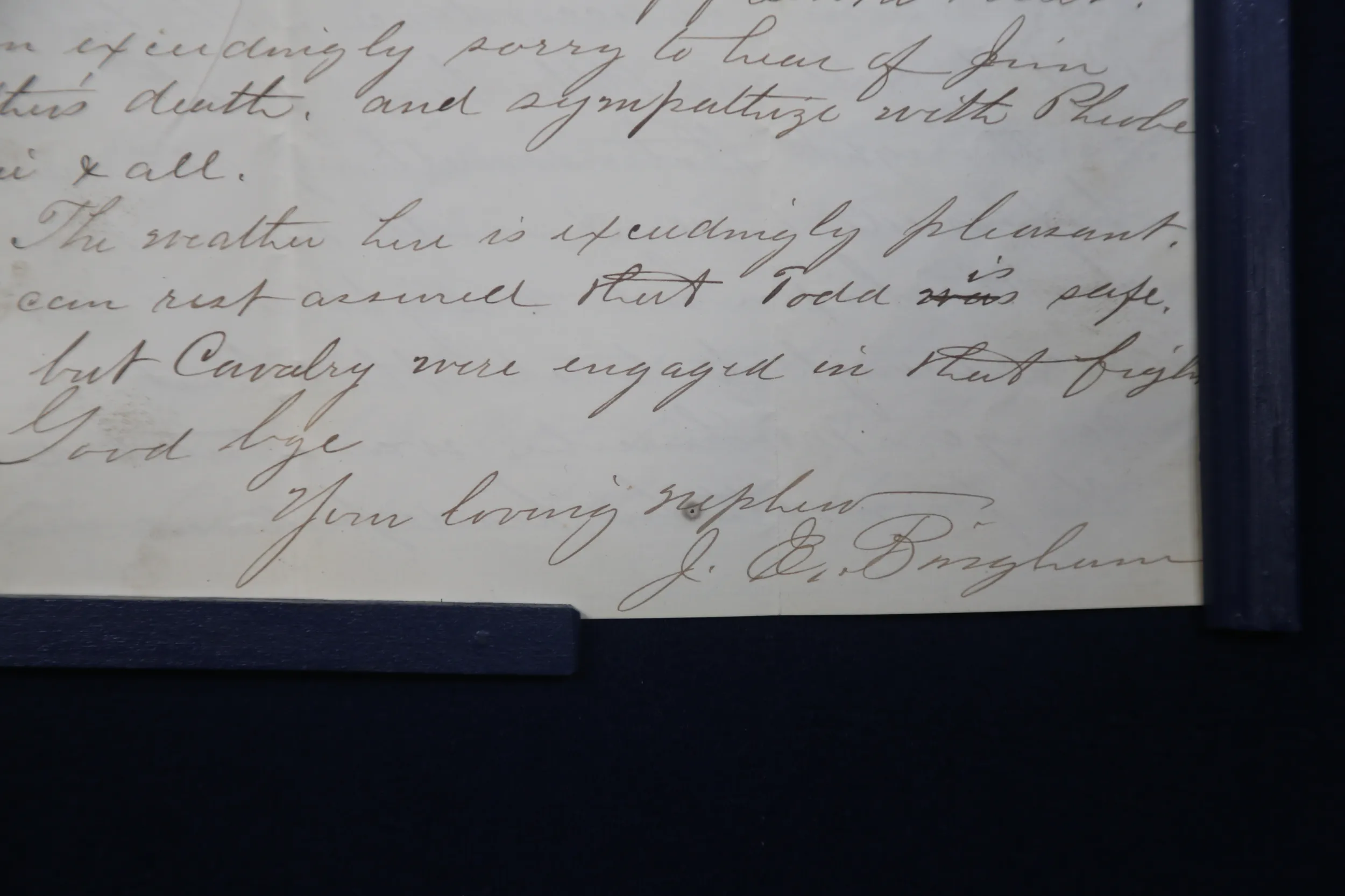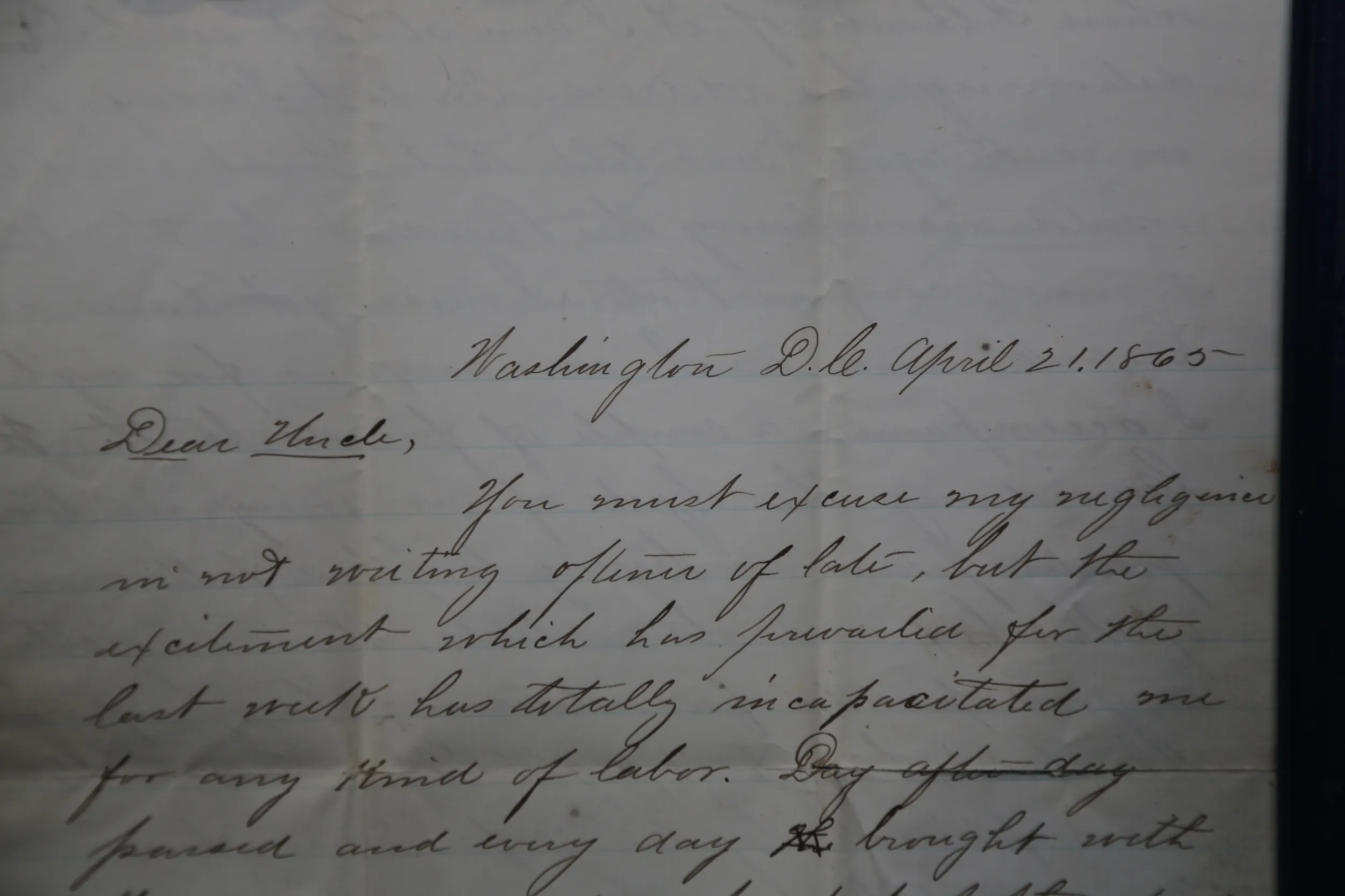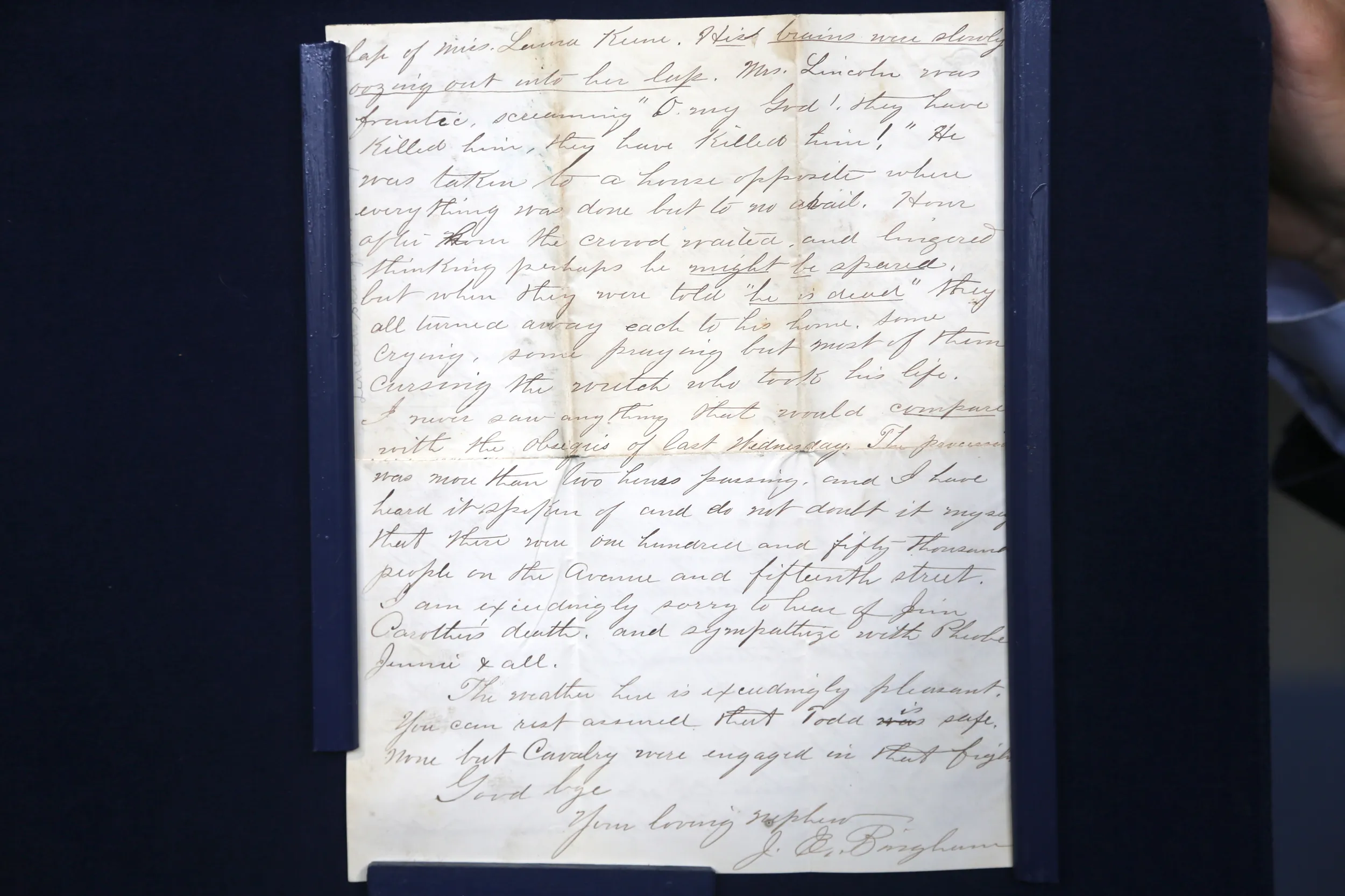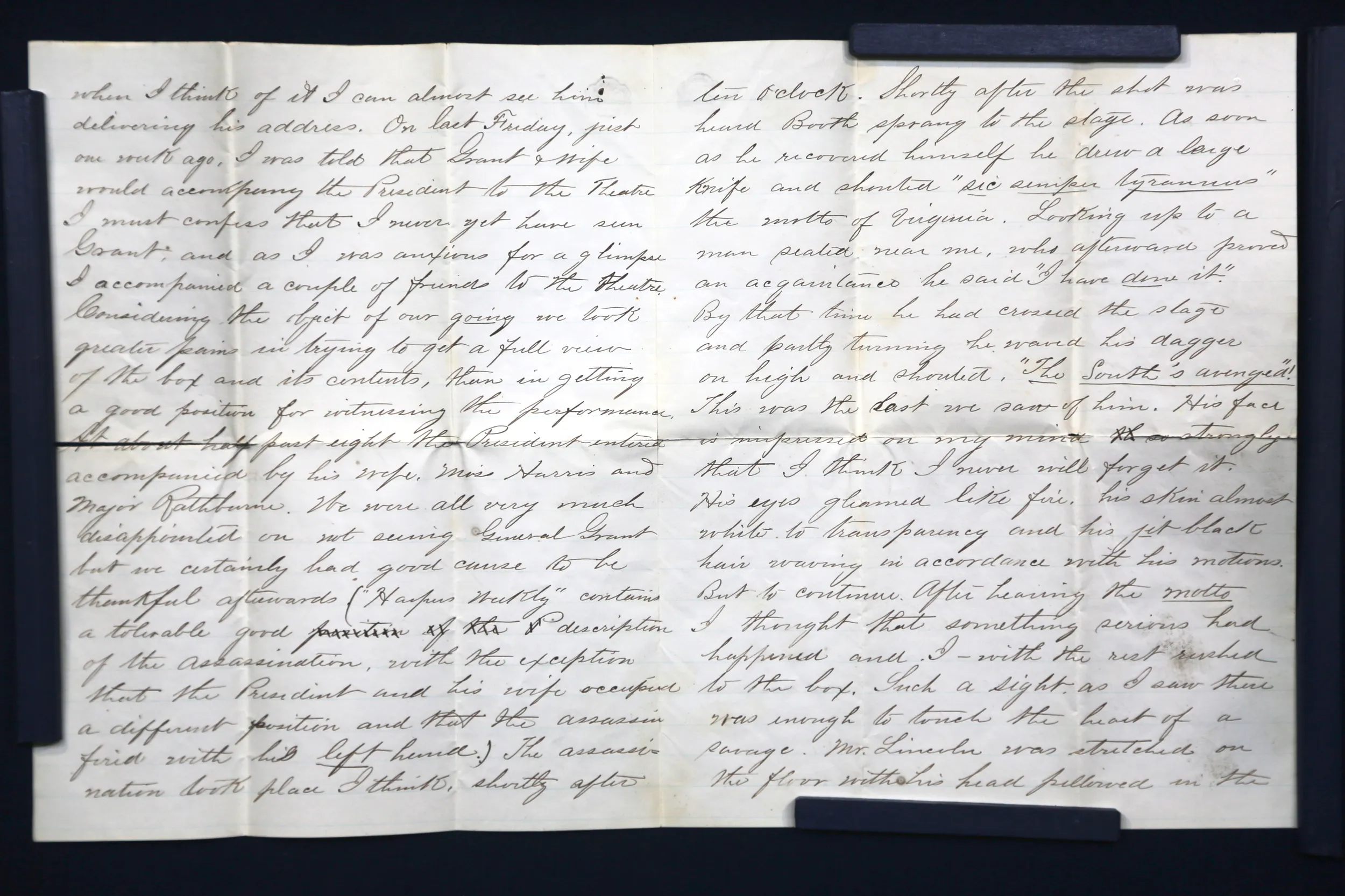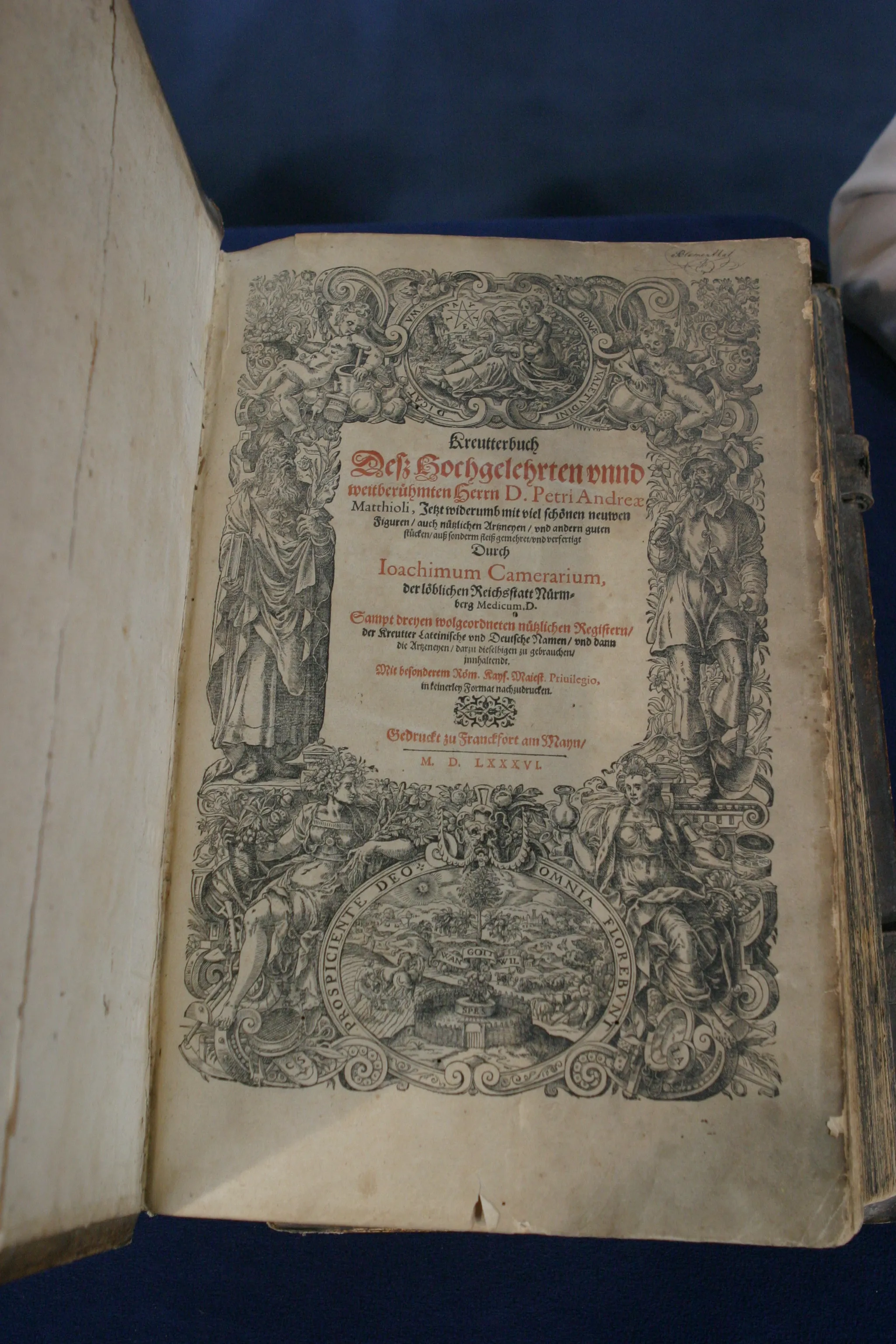GUEST: It's a letter from my grandfather. It was written in 1865. He wrote to his uncle, and he was in Washington, D.C., at the time. He and some friends went to the theater one evening because they had heard that Grant was going to be there, so they thought they want to make sure they could see him.
APPRAISER: Your grandfather is in Washington in 1865—
GUEST: Correct.
APPRAISER: And he's going to the theater to see Ulysses Grant.
GUEST: Yes, who he thinks is going to be there with President Lincoln.
APPRAISER: You remember which theater they were going to?
GUEST: Oh, now, that's not fair. (laughing)
APPRAISER: Well, they were going to the Ford Theatre.
GUEST: Ford Theatre, yes.
APPRAISER: As is mentioned in the letter. The letter's written on April 21, 1865, and your grandfather is at the theater on the Friday before, which was April 14, the day of the assassination. And it is just incredibly moving. The detail of the letter just blew me away.
GUEST: (chuckles)
APPRAISER: So we get the date here, April 21, 1865, and he's describing the events, like he's describing positioning himself to see the president. Let's turn the page here, and if you can give me a hand, we can get to the inside and the more descriptive part of the letter. Written in a wonderful hand, and just a very incredible style. Your grandfather was a very gifted writer. So he's at the theater, he's describing what is going on. "'Harper's Weekly’ contains a good description of the assassination, with the exception that the president and his wife occupied a different position and that the assassin fired with his left hand," underlined. So "Harper's," according to your grandfather, made the mistake of not really accurately describing the event. Up here, this just said, you know, "Shortly after the shot was heard, Booth sprang to the stage, he broke his ankle there. As soon as he had recovered himself, he drew a large knife and shouted, 'Sic semper tyrannis, the motto of Virginia. Looking up to a man seated near me who afterwards proved an acquaintance, he said, 'I have done it.' By that time he had crossed the stage, and partly turning, he waved his dagger on high and shouted, 'The South's avenged.'" This description just... let's my... let's my hair stand up. (chuckles) It's just unbelievable. Where do you keep it?
GUEST: At the bank. (laughs)
APPRAISER: In a safety deposit box, right.
GUEST: Yes, and I'm really concerned, because I think it needs some sort of preservation, for sure.
APPRAISER: It does. The letter written by your grandfather, he wasn't like, a recognized person, right? So a letter written by him would be-- just have a very dear family value. But the contents of this letter just makes it so incredibly important. A conservative estimate at auction would be $10,000 to $15,000. I would expect it to go much higher than that, but at auction, you want to play things safe, and you also want to get people to bid, and so $10,000 to $15,000 would be an awesome starting point.

